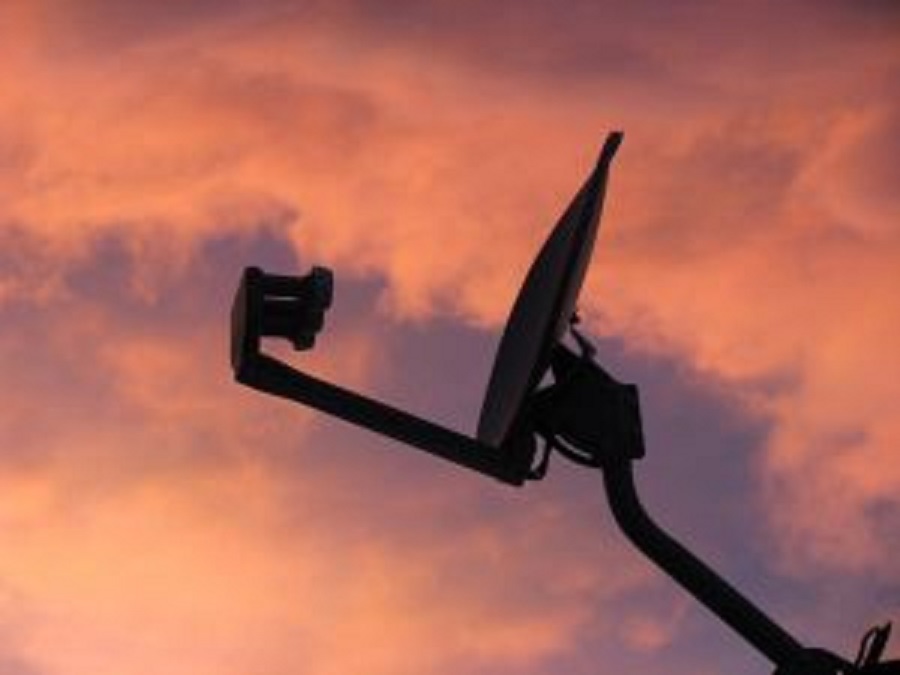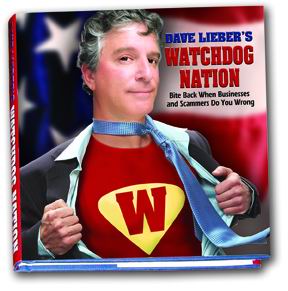The man sitting at the counter at Zeke’s Kitchen restaurant in Garland is acting suspicious. He doesn’t want any food but takes a glass of water. He says he’s waiting on a friend, but no one shows up. He asks that the channel be changed on the restaurant TV.
Then the man steps outside and begins taking pictures of the restaurant. When owner Brandon “Zeke” Roberson asks him what he’s doing, the man runs off.
Roberson’s wife, Julie, thinks it’s suspicious enough that she makes a note of it on the restaurant office’s calendar: “Very strange acting man. Ran off when Brandon asked why he was taking pictures outside.”

Months later, they learn what it’s all about. The man is a fraud investigator for DirecTV, sent to find out if the Robersons are TV signal thieves. Did they sign up for a residential TV account but use it at their commercial establishment?
In June, DirecTV cuts off the restaurant’s service. Then DirecTV’s collection lawyers notify the Robersons that they owe $15,000 in back bills. It’s the darkest day in the restaurant’s history. So much so that the couple have to close the place to catch their breath.
“There are days where you just need to refocus,” a sign on the front door reads. “Hope to see you all Monday when we return with clear eyes and better attitudes.”
The Robersons are certain there’s a misunderstanding. They were never told the difference between a commercial and residential account by the installer. They assumed they had the correct account. They assumed wrong.
To this point, this is a run-of-the-mill business case. Then something unusual happens that changes everything.
The Robersons hire a lawyer, Susan Elizabeth Wright of Richardson, who at first envisions an easy solution. She’ll work to negotiate the final settlement number as low as possible for her clients. They’ll pay something, but her hope is it won’t be much.
Wright begins to research the case, and what she learns is startling. She detects a pattern across the United States of DirecTV installers who, she believes, intentionally mislead business customers into signing contracts for residential accounts without realizing it. Several years later, DirecTV comes after the customers, usually for $15,000 as an initial settlement offer.
Wright sues DirecTV in Dallas County district court on behalf of Zeke’s Kitchen. But this lawsuit doesn’t only challenge DirecTV’s billing practices in the Roberson case. It accuses the satellite television signal provider of fraud, conspiracy and racketeering for its role in a pattern of lawsuits accusing small business owners of stealing TV signals.
The business owners she discovers in her research all have similar stories to that of the Robersons. They believed they were buying the correct commercial signal package for their restaurants, only to get socked later with big back bills.
It’s easy to see the confusion. The contract signed by the Robersons doesn’t clearly show whether it’s a residential or commercial account.
DirecTV spokesman Robert G. Mercer tells The Watchdog: “Using residential programming for commercial purposes is a violation of federal law and our programming agreements. [It’s] unfair to competing bars and restaurants that are paying legitimate commercial rates for their programming.
“We always want to resolve these cases as amicably as possible and that was our intention with Mr. Roberson, until the law firm representing him decided to file a baseless lawsuit, which DirecTV will vigorously defend. DirecTV has filed counter-claims for the unauthorized use and display of its programming.”
DirecTV uses third-party installers, and the one that installed the Robersons’ system on behalf of DirecTV admits he goofed.
In an attempt to get the Robersons off the hook, the installer, Gary Young, owner of Young Ideas, sends an email to DirecTV: “I had just opened my dealership. Went to this guy’s small deli shop and sold him service, not knowing the difference between the commercial and residential as I do now. The customer has no clue also. … I had no intentions of doing wrong. Simply a mistake.”
DirecTV decides to go after the restaurant’s owners anyway.
So Wright, the lawyer, takes on the big company, insisting she can prove a charge as serious as racketeering.
Ohio cafe owners say nobody ever told them the difference between residential and commercial. Same deal for the tavern owner in North Carolina.
Same thing happened at a sushi restaurant in California, a pizzeria in Pennsylvania, another pizzeria in Maine and a Tex-Mex restaurant in Murphy.
“The pattern is clear,” the lawyer says. DirecTV cites a business for $15,000 and then offers to settle for $9,000. In each of these cases, she says, the business owners insisted they sought a proper commercial account, but they apparently were deceived, she says.
In many cases, DirecTV and its collections law firm, Lonstein Law Office of Ellenville, N.Y., have collected settlement money for back payments because settling is often the easiest exit strategy, Wright says. Not her, though. Not this time, she insists.
The lawyer has one more ace in the hole. In 2010, DirecTV signed an agreement with the Texas attorney general that the company would closely monitor its third-party installers to make sure they engage in truthful business practices. Anything short of that is a violation of the agreement.
Young, the installer, and members of the Lonstein law firm did not respond to The Watchdog’s request for an interview.
– – – – – – – – – – – – – – – – – – – – – – – –

Still here? Visit Dave Lieber’s other fun websites:
Personal: YankeeCowboy.com
Hipster site: DaveLieber.org







 \
\


